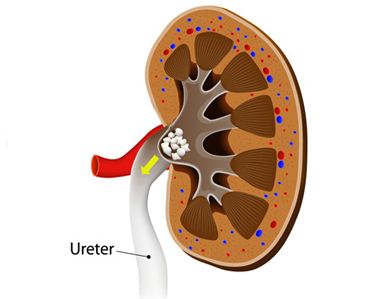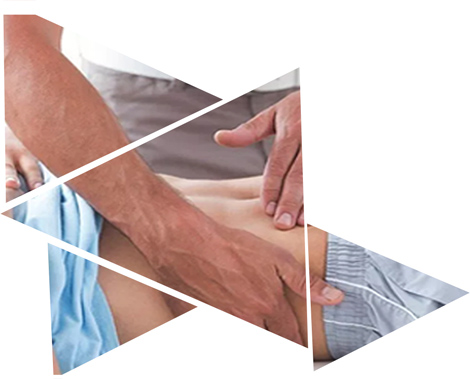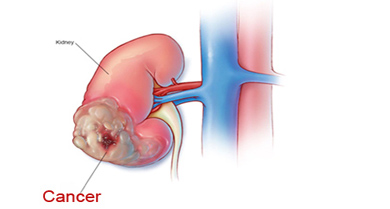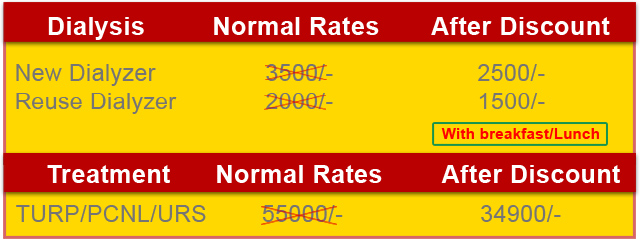+91 7290047401

GET 50% OFF ON FIRST CONSULTATION
Do You Know ?
- Approximately 220000 patients are diagnosed with Kidney Failure every year, which leads to the demand of 34 lacs dialysis sessions in India.
- One out of every 10 people is suffering from kidney stone. Half of them land to kidney failure, if the problem remains untreated.
- Each year in the India, about 1 in 1,000 adults are hospitalized for urinary tract stones. They are most common among middle-aged adults.
- Each year, kidney disease kills more people than breast or prostate cancer. In 2017, more than 47,000 Indians died from kidney disease.
- 2.3 lacspeople may have died prematurely from kidney failure because they could not access this life-saving treatment.
- Erectile dysfunction is a very common problem affecting over 140 lacs men all over the world.
CAN YOU RELATE TO ONE OF THESE HEALTH ISSUES WHEN SUFFERING FROM KIDNEY DISEASE?
Some kidney problems may be temporary while some of them can even lead to kidney failures. About 30 crores Indians have kidney disease, but most of them do not know it because it has no symptoms in the early stages. Here are some important kidney disorders that you should know about.
KIDNEY STONES
Kidney stones occur when certain wastes such as salts and minerals stick to the inner lining of the kidneys. These wastes accumulate and form hard deposits like stones. The smaller the kidney stone, the more likely it will pass on its own. If it is smaller than 5 mm (1/5 inch), there is a 90% chance it will pass without further intervention. If the stone is between 5 mm and 10 mm, the odds are 50%.
Symptoms
- Foul urine smell
- Lower abdominal pain
- Pain in belly
- Urge to urinate
- Blood in urine



BLADDER STONES
Solid masses that form inside the urinary bladder. They develop when the body remains dehydrated for a longer period of time.

Symptoms
- Severe pain in lower abdomen
- Blood in urine
- Difficulty while urinating
- Hematuria (Red or cocoa colour urine)
- Condition with presence of red blood cells in urine
URETER STONES
Ureteral stones are kidney stones that have become stuck in one or both ureters (the tubes that carry urine from the kidneys to the bladder).
Symptoms
- Severe and intermittent pain in the back, under the lower ribs that can radiate to lower abdomen
- Nausea
- Vomiting



Treatment

Medical/Non-surgicalTreatment
Prescription of medicines help in the passage of a kidney stone.
Stones smaller than 4 millimeters (mm) pass on their own 80 percent of the time. Stones that are 4–6 mm are more likely to require some sort of treatment, but around 60 percent pass naturally. Stones larger than 6 mm usually need medical treatment to be removed.
ESWL (Extracorporeal Shock wave lithotripsy)
In this procedure, the doctor uses shock wave lithotripter to aim at the stone present in your kidney. This shock wave breaks the larger stone into very small pieces which can then pass out of the body through urine
Surgical Treatment
Ureteroscopic surgery (URS) is a minimally invasive surgery in which a small telescope is used, that is passed directly through the urethra and into the ureter to remove a kidney stone in the ureter.
Percutaneous nephrolithotomy (PCNL) is used for larger or irregularly –shaped stone. It uses a scope to find and remove the stones. The scope is inserted directly into the kidney through a small incision (cut) in your back. It is used to remove stones of more than 2 cm in size.
RIRS (retrograde intrarenal surgery) is a gold-standard procedure which involves placing the ndoscope into the urethra and then gradually moving towards the bladder and then into the ureter. The whole procedure is carried out under general or spinal anaesthesia.



KIDNEY FAILURE
Kidney failure can be acute or chronic
Chronic renal failure (CRF): When the kidneys gradually loses their function, it leads to chronic kidney failure.
Symptoms
- Swelling in legs, ankle and feet
- Not having enough urine
- Nausea
Acute renal failure (ARF): When the kidneys stop working for a short period of time.
Symptoms
- Loss of appetite
- Nausea
- Vomiting
- Shortness of breath
Treatment
Medical/Non-surgical Treatment: Supportive care and treatment help to manage symptoms but they are not consideredas the treatment for kidney failure. These treatments will help you live as comfortably as possible.
Hemodialysis: This type of treatment uses a machine to clean your blood, and it can be done at a dialysis center or at home.
Peritoneal dialysis: Peritoneal dialysis (PD) is a treatment that uses the lining of your abdomen (belly area), called your peritoneum, and a cleaning solution called dialysate to clean your blood.
Surgical Treatment
Kidney Transplant
A kidney transplant is a surgery to give you a healthy kidney from someone else’s body. A idney transplant may come from a live donor (usually someone you know) or from a deceased donor.
Urinary Tract Infection (UTI):
A urinary tract infection (UTI) is an infection that can affect any part of your urinary system (kidneys, ureters, bladder, and urethra). UTI is found to be affecting majorly the women population. Most of the UTI infections caused by bacteria.
Symptoms
- A strong, persistent urge to urinate
- A burning sensation when urinating
- Passing frequent, small amounts of urine
- Urine that appears cloudy
- Urine that appears red, bright pink or cola-colored — a sign of blood in the urine
- Strong-smelling urine
- Pelvic pain, in women — especially in the center of the pelvis and around the area of the
Treatment
Antibiotics usually are the first line treatment for urinary tract infections. Which drugs are prescribed and for how long depend on your health condition and the type of bacteria found in your urine.
ERECTILE DYSFUNCTION
Impotency is another word known for erectile dysfunction (ED), which is defined as the inability of a man achieving an erection during sexual activity.
Symptoms
-
- Reduction in sexual desire of an individual
- Trouble in getting erection
- Trouble in keeping an erection for a longer duration.
Treatment
Medical/Non-surgical: Oral medicines
or penis pumps for better erection
Surgical treatment: Penile Implants


KIDNEY CANCER
Cancer of the kidney was a dreadful disease in the past because usually patients use to present
in late stages with advanced disease. In the present time most of kidney cancer are incidentally
detected during ultrasound or other imaging studies done for unrelated problems.
Treatment
Partial nephrectomy: If the tumor is very small then sometimes it is possible to remove only the tumor and the kidney can be saved. In this surgery also hospital stay is short and recovery is fast.
Radical Nephrectomy: Using laparoscopic approach theentire kidney along with the tumor is removed and sent for the biopsy.
Symptoms
Pain in the flanks, blood in urine, a palpable mass.



Terms and condition:-
INCLUSION: - 3-day room rent, Surgeon fee, Assistant Surgeon Fee,Pre Anesthetic Check Up(PAC),OT & Anesthesia charges, Surgeon’s consultation charges, Post surgery Anesthetist visit charges, Resident Doctor Charges, Nursing Charges, Diet Charges , Dietitian Charges , Pre-Anesthesia check-up, MRD and Parenting Tips book charges, Basic Lab Tests , General Medicines & Consumables
EXCLUSION:- Extra Stay as defined , Special Test, Cross Consultation , Blood Charges & Transfusion Charges, High-end Antibiotics

Why Choose Us
Full Time Specialist Care
- NABL & NABH Accredited Hospital
- Our doctors are trained in standardized care protocols that help deliver consistent patient care.
- We follow Vigilant and high quality & infection control system.
- Internationally recognized treatment protocols
- We have experienced and highly qualified pediatric doctors
- 95% positive treatment outcome
- We are well equipped with modern equipments for Pediatrician.
- We use Advanced scientific technology for better treatment outcome.
OUR SCOPE OF SERVICES
- Cystoscopy of DJ removal – Bilateral
- DJ stenting-Bilateral
- Endoscopic removal of stone in bladder
- PCNL
- Pyelolithotomy
- Transurethral Resection of Prostate and Bladder Tumour
- Urotripsy
Reviews

“Anchal”
Fully satisfied with “Dr Nikhil Mehrotra”
Awards & Industry Recognization



On Panel of CGHS, ECHS, ESI, DGHS, All TPA, PSUs,
Health Insurance Companies, Noida & Gr. Noida Authority
GET 50% OFF ON FIRST CONSULTATION
Address: NH-01, Sector 137, Expressway, Noida, Uttar Pradesh 201305
24 X 7 Helpline +91 7290047401
Email: info@llp.felixhospital.com